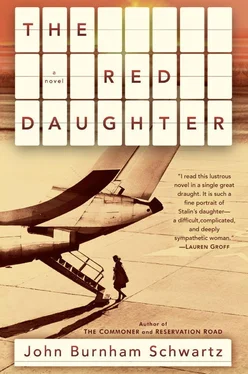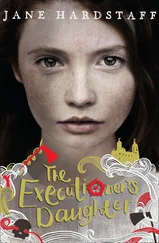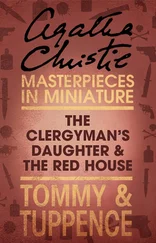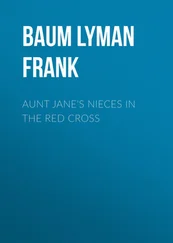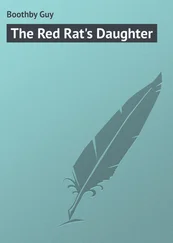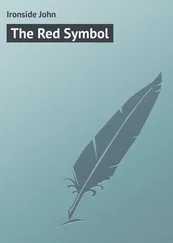Do you happen to know, I say to the curator, what my grandmother’s last words were to my father, her son, before she died?
Last words? The curator’s tone initially skeptical, now fading into hesitancy, as if sensing a trick. No, I…
She said to him, “But what a pity you never became a priest.”
What? Impossible!
Not at all. My father loved it. No story I ever heard him tell made him laugh so hard .
2 February 1985
I have been to Gori and seen the monstrous, three-ring hagiography they have manufactured there after his death. The Greek-columned shrine enveloping the two-room hovel where a boy named Josef Dzhugashvili and his family slept like miserable farm animals, a single pot on a karasinka their only way to cook what little food they had. And nearby, the marbled entrance and monumental staircase that leads one into the museum bearing his later surname of Stalin. Inside, enough statues and likenesses of the vozhd to fill the Parthenon. A room displaying a dozen copies of his death mask. A glass case containing his military greatcoat, boots, cap. On and on.
One object alone evokes genuine emotion: a fragile pair of spectacles that belonged to his mother.
10 February 1985
Today, as most Sundays, I make Yasha go with me to Sioni Cathedral, standing high above the Mtkvari River. We listen to the choir intoning the Georgian Orthodox liturgy (allowed by the State) and singing hymns, raising its voice as one to the true power under which no individual of any name stands different or apart. In this embrace, for entire stretches of timeless time I feel the peaceful beauty of being no one and nothing in a land where this has never been, never will be, possible. At some point as we sing (from his relentless tutoring, Yasha’s Russian has improved, and even his Georgian is coming along surprisingly well), I reach out and take my younger son’s hand. Horrified with teenage embarrassment, he pulls it back. But I take it again, forcefully pressing it between my own so he might feel the fury of my love at this moment, not just for him but for the infinite universe of which we are but the smallest particles, the simplest words in a story that has no ending.
Then it’s over. Believers rise to their feet and begin to file out. Crosses everywhere one looks: Tbilisi a city of crosses. I sense eyes on me again from all quarters and know that if we linger even a minute inside this holy house, inhibitions will be discharged and people will start approaching, driven by their obsessions with that other Him, the vozhd, compelled to tell us how he was the greatest of all men, the one, the only, the true, for he was Georgian was he not, yes from Georgia he sprang fully formed (and robbed and killed, one might add, and then left). Though he spoke perfect Russian, he kept his Tbilisi accent all his life! Embraces will follow—kisses, hugs, invitations to feasts.
But it is a fleeting, thorny love: for if Yasha and I do not rush to add superlatives of our own to their burning pyre of horseshit, there and then will we be called traitors to our own blood.
26 February 1985
I have not heard from Josef since we left Moscow, and all my letters to Katya have come back unopened.
I met with the church Patriarch, a private audience he granted me because of my name. He told me that I must write only words of love to your children, for they have forgotten what is love and forgiveness .
2 March 1985
Terrible fight with Yasha. Terrible. My hands still shaking.
I hate this place!
Why the fuck did you bring me here? Do you even know?
You’ll be sorry when I run away!
I’ll find Dad and live with him!
You’ll never fucking see me again!
Maybe then you’ll be happy!
I hate you!
You’re the worst mother in the world!
6 March 1985
Jora steers the Lada slowly through the village of Akhalsopeli. A village that looks much like any other in the vicinity of Tbilisi. He pulls up in front of a ramshackle gate decorated with a little gold bust of my father.
I’ll come in with you.
No, thank you, Jora.
You know this guy?
A friend of my cousin’s. He’s spent years building an “homage” to my father, and has asked me to do him the honor of visiting. It will offend my cousin if I don’t go. I won’t be long.
He could be a nutjob.
We’re all nutjobs, Jora.
Jora smiles. Because even though I know he’s spying on me, we both occasionally appreciate the absurdity of this pervasive madness that has made even once-familiar absurdities surprising.
Just inside the gate, I am met effusively by a bearded Georgian with deep-set dark eyes and a nose that would not be out of place on a Romanian count. His first words to me, in Georgian-accented Russian: I love Stalin!
Whatever he is building, single-handedly by the look of it (I notice a smattering of paint on the sleeve of his coat), it will clearly take years, decades to complete. Everywhere around the premises of the sprawling property are buckets of plaster, bags of cement, heaps of colored glass shards to be used in constructing further mosaics, busts, statues, effigies, mausoleums, dreamscapes in honor of our hero, the greatest man ever to come from our great country of Georgia, to say nothing of the world! He apologizes that the museum space itself is not ready; he’s still in the process of gathering necessary materials. There are also to be a Stalin fountain and an electric dawn-to-dusk Stalin mechanical elaboration, along with three secret Stalin gardens, though none of these exhibits, unfortunately, along with so much else, is anywhere near ready for viewing.
One display, however, has already been finished. This took five years to achieve. Into it he poured all the love he has for my father, the pride in his existence. Would I care to see it?
A bit annoyed now, wishing I had brought Jora with me, I tell this maniac that I would be happy to see whatever he has to show me, though my driver is waiting and I really don’t have much time.
He bows formally. Please, follow me.
Through unkempt hedges with openings hacked into them, and little Stalin grottoes in nascent rough-hewn form, we make our way down through an overgrown garden to an entrance covered by a moldy blanket of earth-colored felt. My host holds aside this rotting cloth, switches on an old flashlight, and points its watery yellow beam into the darkness beyond.
This is what you will wish to see.
I enter the cave. The light extends along the floor until, a meter in front of me, it unexpectedly reveals a wall thickly textured with some dark substance that gives off its own waxy glow.
I shy back, trembling uncontrollably. For what he has brought me to see, I understand, is a ghoulish effigy of my dead father.
The vozhd’ s face distorted and ruined as it had been at the very moment of death. His mouth lipsticked, his mustache dusted with obscene cosmetics. His once-powerful body trapped forever in the hell of an open coffin. His sunken chest piled with filthy plastic flowers.
What have you done? I whisper in horror.
Isn’t it wonderful? my host says proudly. Now he will truly live forever .
18 March 1985
Chernenko is dead. So Gorbachev will take his turn. They say he’s liberal; we will see. A cunning look to his face, this one, with the enigmatic punctuation on his bare scalp. He is convinced that the USSR has become a retrograde nation of raging alcoholics, and promises that his first act will be a massive crackdown on vodka. Perhaps he’s smarter than I gave him credit for. Or perhaps they will kill him for trying.
Читать дальше
